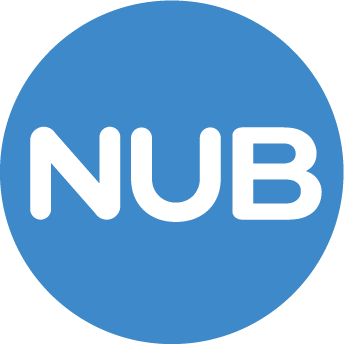Hey there founders!
Welcome to our second blog post of the ‘Founder’s Guide to HR’ series. Throughout this series, we’re going to give attention to the often overlooked and undervalued aspect of business strategy – Human Resources (HR).
Demystifying Human Resources
Today we are going to focus on uncovering the purpose of HR in business. As we mentioned in our introductory post, there is generally a common outdated misconception around the purpose and value of HR among start-up & scale-up founders. As a result, some founders are not engaging with HR soon enough in their lifecycle and failing to recognise a key driver of start-up & scale-up short and long term success.
The Vital Role of Human Resources: Unlocking Business Success
In the dynamic landscape of modern business, the often-overlooked hero working behind the scenes is Human Resources (HR). For those unfamiliar with HR, it’s not merely a department managing paperwork and hiring processes; rather, it is a strategic powerhouse shaping the very heartbeat of an organization. In this blog post, we’ll explore the crucial role HR plays in achieving business success, and statistics that highlight its profound impact.
I like to visualise HR by imagining a tree where the roots represent the foundational elements of a business, the trunk symbolises the organisational structure, and the branches represent various business functions. The leaves represent employees, each contributing to the overall vitality and success of the tree. At the core of the tree is the HR function, depicted as the heart, nurturing, and supporting the growth of the entire organism, without it, the organisation would neither grow or survive. This visual illustrates how HR serves as a central and vital component, connecting and nourishing every aspect of the business to ensure its health and growth.
Understanding the Essence of Human Resources
At its core, HR is the driving force that connects a company’s objectives with its most valuable asset—its people. Gone are the days when HR was considered solely as a support function. Today, it is a strategic partner that influences every aspect of the business, contributing significantly to its success.
Let’s take a closer look at how Human Resources achieves this by understanding the key roles HR play and the impact these have on business success.
HR Partnership with Leadership
HR serves as a strategic member of the leadership team, aligning workforce strategies with organizational goals. By facilitating talent management, fostering employee engagement, ensuring legal compliance, and contributing to data-driven decision-making, HR plays a pivotal role in enhancing and developing the effectiveness of business leaders, driving overall business success, and creating a positive and productive work environment.
When leadership doesn’t partner with HR at the executive level, it results in a misalignment of its workforce with business goals, ineffective talent management, poor employee engagement and morale, increased legal and compliance risk, ineffective change management, missed opportunities for leadership development, limited data-driven decision making, strained employee relations and significantly increased costs and inefficiencies.
Strategic Workforce Planning
HR aligns the workforce and team structures with organisational goals, anticipating future skill needs, adapting to changes in the business environment, ensuring optimal resource utilisation and fostering long term success, through a well-prepared and agile workforce.
Companies that neglect to engage in workforce planning, significantly increase the risk of skills shortages that lead to decreased productivity, an inflexible workforce resulting in missed opportunity and an inability to pivot and reactive rather than proactive talent management resulting in a low employee engagement, talent acquisition challenges, compliance risks and increased turnover.
Organisational Culture Development
HR plays a pivotal role in shaping and reinforcing a positive and inclusive organizational culture that reflects the company’s values and supports the achievement of the company mission by creating a shared identity and values, attracting top talent, improving retention, a positive employer brand, aligning decision making and enhancing the overall resilience and competitiveness of the organisation.
While every company has an organisational culture, businesses who fail to identify, invest in and promote a positive culture risk an increasing turnover, difficulty attracting top talent and a toxic work culture impacting employee morale, performance and opportunity for increased revenue.
Talent Acquisition and Management
HR’s role is attracting, recruiting, and retaining a diverse and skilled workforce to ensure a business has the right skills, experience, competencies, and values it requires to achieve organisational success.
A well designed and implemented Talent Acquisition & Management strategy, leads to a reduction in Cost Per Hire, Increased Revenue per Employee, Faster Time-to-Fill Positions, Improved Employee Performance, Increased Employee Retention, Customer Satisfaction and a significant competitive advantage. The impact on profit is multifaceted and emphasizes the financial benefits of investing in the design and management of a Talent Acquisition & Management strategy for businesses.
Without effective talent acquisition and management, businesses struggle with skill shortages and high turnover rates, leading to reduced organisational efficiency, instability, loss of opportunity, employee stress, lower productivity and significantly increased recruitment costs.
Employee Development and Learning
Facilitating continuous learning and development opportunities to foster the career growth and engagement of individuals and improve the organisations ability to achieve success, by enhancing productivity, adaptability, decision making and contributing to the overall success and competitiveness of a business.
The consequences of a business not providing its workforce with the opportunity for development can include a stagnant workforce with limited competencies and skills and reduced employee engagement, negatively impacting productivity, adaptability, missed opportunity and according to the Association for Talent Development, a significant opportunity for income.
Employee Engagement
Human Resources fosters a positive work culture, ensuring high employee morale, and promoting well-being to enhance overall engagement, resulting in increased productivity, innovation, employee retention, profit and overall business success.
The consequences of an disengaged workforce includes low employee morale and decreased productivity, higher turnover rates and reputational damage to a business’s employer brand that negatively impacts an ability to attract top talent. All of which significantly impacts opportunity for profit and overall business success.
Diversity, Equity, and Inclusion (DEI)
HR promotes diversity, equity, and inclusion to create a workplace that values and respects differences, resulting in a rich tapestry of perspectives, enhancing innovation, creating a workplace culture that attracts top talent and strengthens the competitiveness and reputation of the business.
The impacts of neglecting diversity can result in a stagnation in innovation and creativity and a less adaptable organisation in a globalised and diverse market.
Performance Management
HR implements performance management systems to set goals, provide feedback, and evaluate employee performance in line with organisational objectives. Optimising employee productivity, aligning individual and organisational goals and fostering continuous improvement, resulting in heightened overall efficiency and achievement of strategic goals.
Failing to engage with performance management systems, contributes to poor employee performance and dissatisfaction, lack of clarity on organisational goals and suboptimal productivity.
HR Technology Integration
Human Resources leverages HR technology to streamline operational processes, record employee related data, measure performance and engagement and provide self-service options for employees, enabling data-driven reporting & decision making, enhancing employee experience, ultimately optimising workforce management, and contributing to overall business efficiency and success.
The negative consequences of not engaging with HR technology systems to manage multiple areas of Human Resources risks businesses falling behind competitors in a rapidly evolving HR technological landscape.
Health and Wellness Programs
HR develops and implements health and wellness initiatives to support employee well-being, mental health and work-life balance, resulting in a more productive and engaged workforce, reducing absenteeism, increasing engagement and fostering a positive workplace culture, ultimately benefiting the overall success and sustainability of a business.
When businesses choose not to support employees through effective Health & Wellness Programs, they risk issues such as extended absenteeism and healthcare costs, and a workforce prone to burnout resulting in decreased productivity.
Compensation and Benefits Administration
HR designs and manages a competitive and innovative compensation and benefits packages that aligns with industry standards, to attract, motivate, and retain a high-performing workforce. This includes salary structures, bonuses, incentives, and comprehensive benefit packages. Ultimately promoting a positive employer brand, attracting top talent and contributing to the overall success and competitiveness of the business.
Ineffective compensation and benefit administration and planning results in high turnover due to dissatisfaction with compensation, difficulty attracting, securing and retaining skilled professionals and lack of employee engagement and morale.
Employee Relations and Conflict Resolution
HR manages employee relations, resolving conflicts, and maintaining a positive work environment. Promoting a positive work environment, reduces turnover, and enhances productivity, contributing to a harmonious workplace, increased employee loyalty and trust.
Without the ability to effectively manage employee relations and conflict resolution, businesses risk escalations of conflict significantly impacting productivity, erosion of trust, a toxic work environment and costly litigation and company reputational damage.
Leadership Coaching & Mentoring
Leadership coaching and mentoring by Human Resources (HR) serve the purpose of developing and enhancing the skills, competencies, and effectiveness of organizational leaders. Through personalized guidance and support, HR coaching and mentoring programs help leaders reach their full potential, drive performance improvements, and foster a culture of continuous learning and development within the organization.
Failure to engage with coaching and mentoring programs can have significant negative implications for Leadership Development, Employee Morale & Engagement, Leadership Burnout & Turnover and opportunity for Innovation & Growth.
Unlocking Potential for Business Success
In essence, Human Resources is the orchestrator of organizational harmony, ensuring that people strategies align with business strategies. By investing in talent, nurturing employee development, fostering engagement, promoting diversity and inclusion, and embracing technology, HR becomes the catalyst for business success.
Recognizing the strategic significance of HR is paramount. It’s not just a department; it’s the heartbeat that pulsates through every aspect of an organization, propelling it towards unprecedented success. Through innovative HR strategies, businesses can create a resilient, engaged, and high-performing workforce that stands as the bedrock of their triumphs.
HR & Start-ups/Scale-ups
Next in our ‘Founder’s Guide to HR’ we will focus on start-ups & scale-ups and specifically why Human Resources is a key predictor for their success, what HR looks like at each stage of your businesses lifecycle and how Human Resources can increase your chances of success from day one.
Remember to follow us to make sure you don’t miss out on our blog series, or if you like to know more about how Incubator HR can support your start-up or scale-up please reach out to us at hello@nub-hr.com.


